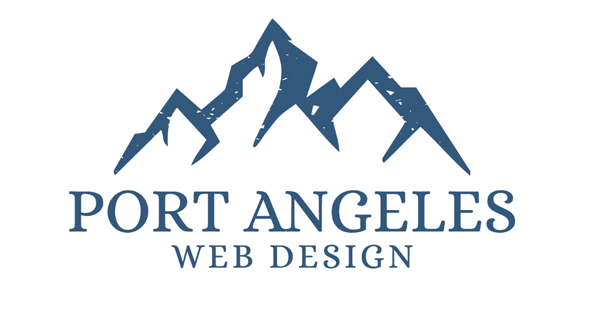Blog Layout
Challenges with using WordPress
Richard Fagan • April 2, 2022
You could have your website built in WordPress, but it wouldn’t be worth it.

WordPress was built for blogs, not small businesses. Websites can experience technical difficulties and may need a lot of management from a business owner or his/her web developer, especially if it is created in WordPress. Here is a short summary of the top 5
reasons why WordPress is not the solution most web developers claim it is...
- Relies on Lots of 3rd Party Plugins
WordPress is a very basic Content Management System (CMS). It relies on 3rd party Plugins for even the most basic features. You or your web developer will need to search for plugins to provide most features you'll want in your website. Some plugins are free and others come with a fee. Sometimes, the plugins found are outdated and are no longer being used. These plugins will need to be installed, managed and updated. Simple functionality such as a contact form, image gallery, or Search Engine Optimization (SEO) require plugins. Do you have the time to manage and update the plugin each time the 3rd party developer releases a functionality or security update? Or will you pay your webmaster to accomplish this task? Either way, it's just another task that needs to be accomplished to keep your website secure and working properly. - Frequent Theme and Plugin Updates.
In today's digital environment, technology advancements and search engine algorithm enhancements result in frequent updates to WordPress themes and plugins. You or your webmaster will need to constantly monitor your website dashboard to see if your theme or plugin needs to be updated. It's not uncommon for a typical WordPress site to require theme or plugin updates monthly. Many small business owners don't bother keeping up with installing the updates, and soon find themselves with a website that is unstable or buggy. - Slow Page Speed
Slow page speed is simply the logical result of all the added plugins and bloated database/code bases. To complicate things website hosting isn't optimized for WordPress. To get some semblance of decent page speed, you'll need to pay a premium to install your site on a WordPress optimized hosting plan. Even then, you'll be on a 'shared server', sharing server resources with hundreds of other websites. The result? Poor page speed. Page speed is crucial. Today's audience expects quick loading websites. Don't lose business as potential customer gets impatient and decide to leave. - Poor SEO Ranking
WordPress was originally developed for bloggers. It's framework wasn't built with Search Engine Optimization in mind. It does offer limited SEO optimizing features in various packages or plugins. These are 'band-aids' not solutions. - Website Security
If it's on the internet, it can be hacked or spammed. That's a fact! WordPress relies heavily on 3rd party plugins. Each plugin is like a door for hackers and spammers to enter. Sure, you can put your faith in each one of the 3rd party developers to judiciously provide you with security updates to keep the door 'locked', but just how many vulnerabilities are you willing to tolerate? Any website vulnerability can have a negative impact on your credibility and could potentially spread viruses to your users.
A good small business website can’t be built on WordPress without the use of unstable plugins that will break your website every time WordPress runs an update. We are a better choice because small businesses are our specialty.
We provide:
- Better SEO
Right from the start, our websites’ innovative, built in architecture improves SEO automatically. Our entire platform is aligned with Google protocol to raise your website’s Google ranking. - Better Performance
We optimize our websites to load faster and score higher on the Google PageSpeed test. On WordPress, your website’s content will be slowed down by numerous code and software bloats. - Better User Experience
Our responsive websites provide a better user experience across all devices. Turn more visitors into customers with up to 70% higher conversion rates than industry averages.

By Richard Fagan
•
February 18, 2025
Search engines are constantly evolving, and one of the most debated topics in SEO is the influence of social media on search rankings. While Google has stated that social media metrics like likes and shares are not direct ranking factors, there’s no denying that social media activity can have a significant indirect impact on SEO. The question is: Are some social media connections more valuable to SEO than others? The short answer is yes. Not all social media platforms contribute to SEO in the same way. Some platforms are more authoritative, indexed more frequently, and capable of driving high-quality referral traffic. In this article, we’ll explore which social media connections offer the most value for SEO and how to leverage them for better search rankings. YouTube: A Powerhouse for Video SEO YouTube is owned by Google, making it one of the most influential platforms for SEO. Well-optimized videos can appear in both Google’s video search results and regular search listings. By incorporating keyword-rich titles, descriptions, and captions, you can enhance your website’s visibility. SEO Benefits: - YouTube videos rank in Google’s search results, providing an additional avenue for visibility. - Embedded YouTube videos can increase dwell time on your website, a positive user engagement signal. - Video content encourages backlinks and social shares, indirectly boosting domain authority. Twitter/X: Fast Indexing & Brand Mentions Twitter is one of the few social media platforms that Google indexes frequently. Tweets from authoritative accounts often appear in Google search results, making Twitter an effective tool for amplifying content reach. SEO Benefits: - Tweets appear in search engine results, increasing visibility for trending topics and branded searches. - Twitter encourages brand mentions, which can lead to natural backlinks from other sources. - Sharing high-quality content can drive referral traffic and encourage organic link-building. 3. Pinterest: Image SEO & Long-Term Traffic Pinterest is often overlooked in SEO discussions, but it is a powerhouse for driving organic traffic, especially in visual niches like fashion, food, travel, and home decor. Pins can rank in Google image searches and continue driving traffic for months or even years after they are posted. SEO Benefits: - Pins and boards get indexed by Google, providing additional opportunities for search visibility. - Keyword-rich descriptions help improve rankings in both Pinterest and Google searches. - High engagement on Pinterest can lead to more inbound links from blogs and websites. 4. Reddit & Quora: Niche Authority & Referral Traffic Both Reddit and Quora offer opportunities to position yourself as an industry expert while driving targeted traffic to your website. While links from these platforms are typically nofollow, their impact on SEO goes beyond link value. SEO Benefits: - Well-received answers and discussions can appear in Google search results, increasing your content’s reach. - A strong presence on these platforms can build brand authority and encourage organic backlinks from other sources. - Referral traffic from niche communities tends to be highly engaged, reducing bounce rates and improving on-site metrics. 5. Facebook & Instagram: Brand Awareness & Engagement While Facebook and Instagram are less directly tied to SEO, they still play a role in overall digital marketing success. Posts on these platforms aren’t typically indexed by Google, but they help with brand discovery, social sharing, and audience engagement. SEO Benefits: - Strong social engagement can lead to more website visits and increased branded search queries. - Viral content can attract media attention and backlinks from other websites. - Social proof and user engagement contribute to trust and authority, indirectly boosting SEO. Maximizing Social Media for SEO Success To make the most of your social media connections for SEO, follow these best practices: - Share high-quality content** that is valuable, shareable, and engaging. - Optimize your social media profiles** with relevant keywords, descriptions, and links to your website. - Encourage social sharing** to increase content reach and the likelihood of earning backlinks. - Use social media to amplify new content**, driving initial traffic and engagement that can lead to organic ranking improvements. - Engage with industry influencers and communities** to increase visibility and credibility. Not all social media connections are created equal when it comes to SEO. **YouTube, Twitter, Pinterest, and Reddit** offer the strongest indirect SEO benefits by driving traffic, encouraging backlinks, and increasing content visibility in search results. However, a well-rounded social media strategy that includes brand-building on platforms like Facebook and Instagram can still contribute to overall online authority. By leveraging the right social media channels strategically, you can enhance your SEO efforts, drive more organic traffic, and establish your brand as an industry leader. Social media and SEO go hand in hand—so make sure you're using both to their full potential!

By Richard Fagan
•
September 2, 2024
The Google Index process refers to how Google collects, organizes, and stores information from web pages to make it accessible through search results. The purpose of this process is to enable Google Search to quickly retrieve relevant information in response to user queries. The process involves several key steps: 1. Crawling Definition: Google uses automated bots called "Googlebots" to discover new or updated web pages by following links on the web. Purpose: To find as much content as possible, ensuring the search index remains comprehensive and up-to-date. How it works: Googlebot begins with a list of known URLs (from previous crawls or sitemaps) and discovers new pages by following links from these. 2. Rendering Definition: After crawling, Google processes the HTML, JavaScript, CSS, and other elements to see how the page would appear to a typical user. Purpose: To understand the layout, design, and content as users would experience it. How it works: Google uses headless browsers (like Chrome) to simulate how the page renders, ensuring it can read dynamic or JavaScript-generated content. 3. Indexing Definition: Google analyzes the content and structure of crawled pages and organizes the data for storage in its massive index. Purpose: To make content searchable by categorizing it based on topics, keywords, and other signals. What Google stores: Text content Meta tags (e.g., titles, descriptions) Structured data (e.g., schema markup) Images and videos (if applicable) 4. Ranking Definition: When a user searches, Google retrieves information from its index and ranks results based on relevance and quality. Purpose: To deliver the most accurate and helpful answers to users. Factors considered: Keywords in the content Page quality and authority User experience metrics (e.g., page speed, mobile-friendliness) Backlinks and site reputation Purpose of the Google Index Efficiency: By pre-organizing data, Google can retrieve results almost instantly when a query is made. Relevance: The index helps ensure that users get the most pertinent results based on their search intent. Scalability: The index allows Google to handle billions of searches daily across an enormous volume of web content. The Google Index process is essential for organizing the internet’s vast amount of information, making it searchable, and ensuring users find relevant, high-quality results efficiently.
360.320.0777
Port Angeles, WA
Privacy Policy
Island Internet Presence Consulting, LLC dba Port Angeles Web Design
Unified Business ID #: 602729504
N

